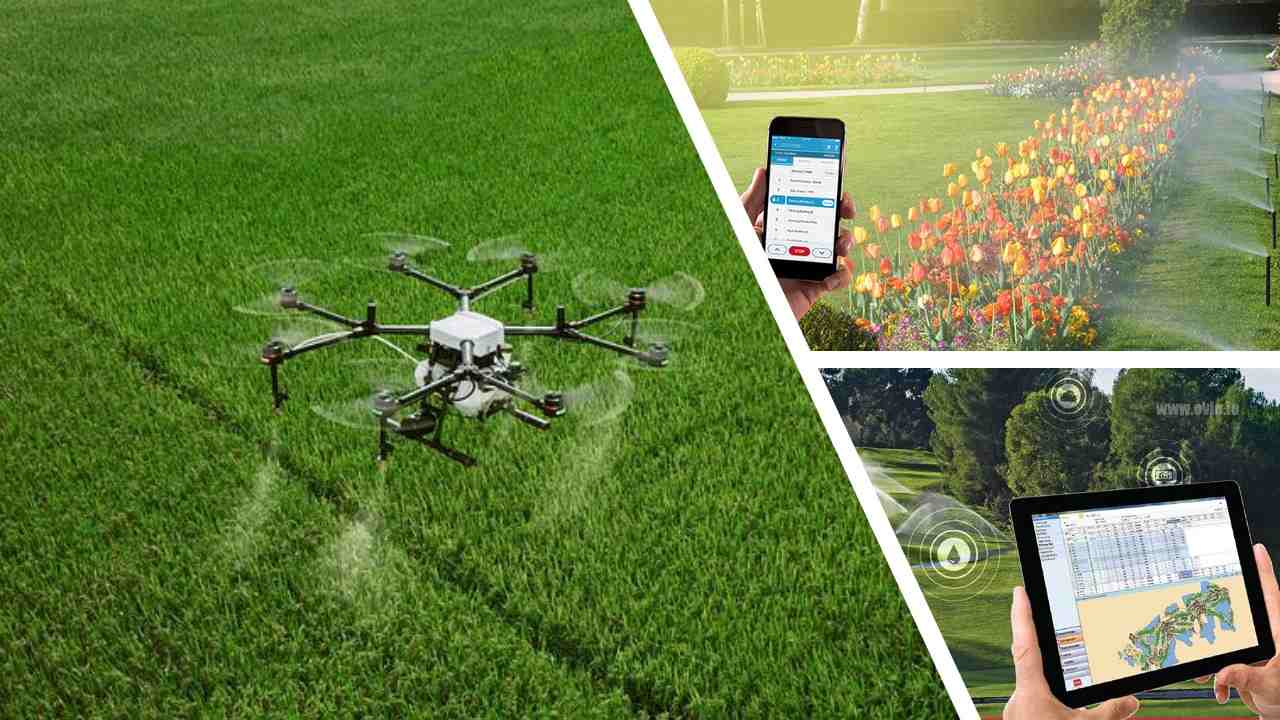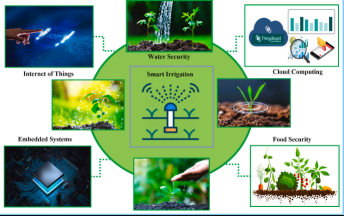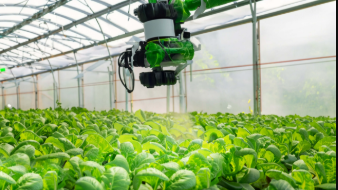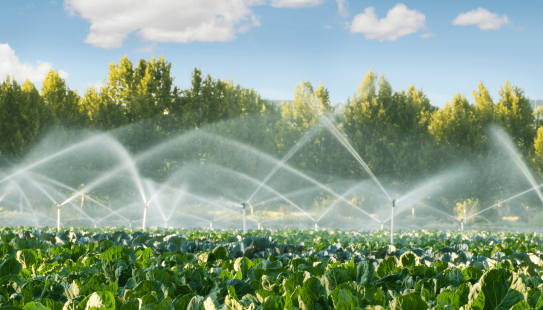AI-Based Smart Irrigation Systems: Reducing Water Waste and Improving Crop Yield
 Sathya Kannan
Sathya Kannan
In recent years, the agricultural sector has seen rapid technological advancements aimed at increasing productivity, sustainability, and resource efficiency. One of the most transformative innovations in this domain is AI-based smart irrigation systems. These systems leverage the power of artificial intelligence (AI) and machine learning (ML) to optimize irrigation processes, reduce water waste, and improve crop yields. As water scarcity becomes an increasingly critical global issue, adopting such technologies in agriculture presents a promising solution to ensure food security and sustainable farming practices.
The Challenges of Traditional Irrigation Methods
Traditional irrigation techniques, such as flood irrigation and sprinkler systems, have been the backbone of agriculture for centuries. However, these methods often lead to inefficient water usage. Flood irrigation, for example, can result in significant water runoff and evaporation, while sprinkler systems may apply water uniformly even if parts of the field don't need it. Both methods frequently waste water, which is a growing concern in areas facing water shortages.
In addition to water waste, traditional irrigation methods can be labor-intensive, requiring manual monitoring and adjustments based on weather conditions and soil moisture levels. These inefficiencies can lead to poor crop yields, higher operational costs, and environmental degradation. As the world population grows, and climate change leads to more extreme weather patterns, the need for smarter, more efficient irrigation systems becomes even more urgent.
EQ.1 Water Usage Efficiency Equation:

The Role of AI in Smart Irrigation
AI-based smart irrigation systems address the shortcomings of traditional methods by utilizing sensors, data analytics, and machine learning algorithms to make real-time decisions about water usage. These systems are designed to automatically adjust irrigation schedules based on various factors such as soil moisture levels, weather forecasts, crop type, and local climate conditions.
At the heart of these systems is data collection through sensors embedded in the soil or installed on the irrigation equipment. These sensors provide continuous feedback on moisture levels, temperature, and other critical factors that influence plant health and water needs. By integrating this real-time data with weather forecasts, AI algorithms can predict when and how much water is needed for optimal crop growth, adjusting irrigation schedules accordingly.
Machine learning (ML) algorithms further enhance these systems by learning from historical data, weather patterns, and crop behavior over time. With this wealth of data, AI can fine-tune irrigation schedules and patterns to ensure that water is used as efficiently as possible. Over time, the system becomes more accurate, adapting to changing conditions such as seasonal variations, new crop varieties, or shifts in local climate patterns.

Benefits of AI-Based Smart Irrigation Systems
Water Conservation Water conservation is perhaps the most immediate benefit of AI-based smart irrigation systems. By using real-time data and predictive analytics, these systems can reduce water waste by ensuring that crops receive the precise amount of water they need, when they need it. This not only reduces water consumption but also helps prevent water runoff and evaporation, which are common issues in traditional irrigation practices.
In regions where water is a limited resource, such as arid and semi-arid climates, smart irrigation systems can significantly help in preserving water and maintaining crop productivity. This conservation of water can be critical for sustaining agriculture in the face of growing water scarcity.
Improved Crop Yields Efficient irrigation leads to healthier crops. With AI-driven systems that ensure plants receive the right amount of water at the right time, crops are less likely to suffer from water stress. Both overwatering and underwatering can harm plant growth, leading to poor yields. Smart irrigation systems can minimize these risks by maintaining optimal moisture levels in the soil.
Furthermore, AI-based systems can adjust irrigation schedules according to the specific needs of different crops, ensuring that each type of plant receives the ideal amount of water. This results in improved crop health and, ultimately, better yields. In this way, smart irrigation can directly impact the profitability and sustainability of farms.
Cost Efficiency While the initial investment in AI-based smart irrigation systems can be significant, the long-term savings are substantial. By optimizing water usage, farmers can reduce water bills, labor costs, and the need for fertilizers and pesticides, as healthy crops are less susceptible to pests and diseases. Additionally, these systems can help prevent over-irrigation, which can lead to soil erosion and nutrient loss, reducing the need for costly soil amendments.
AI systems can also reduce labor costs by automating many aspects of irrigation management. Instead of manually monitoring soil moisture levels or adjusting irrigation schedules, farmers can rely on the AI system to make real-time decisions and handle the process automatically.
Sustainability and Environmental Impact AI-based irrigation systems not only help farmers but also contribute to environmental sustainability. By minimizing water waste and optimizing resource use, these systems reduce the environmental footprint of agriculture. In addition, more efficient irrigation practices reduce the need for chemical inputs such as fertilizers and pesticides, as healthier crops are less vulnerable to pests and disease.
As climate change leads to more unpredictable weather patterns and water shortages, adopting sustainable farming practices becomes essential. Smart irrigation systems offer a practical solution to help farmers adapt to these challenges and maintain productivity in a changing climate.
Scalability and Adaptability One of the advantages of AI-based systems is their scalability. Whether for a small family farm or a large industrial agricultural operation, smart irrigation systems can be tailored to meet the specific needs of different farm sizes and crop types. AI systems can manage multiple zones within a farm, adjusting irrigation schedules based on variations in soil moisture, crop type, and local climate conditions.
Additionally, these systems are adaptable to changes in farming practices or environmental conditions. As new technologies emerge, AI systems can be updated with new data inputs and algorithms, ensuring that they remain effective and relevant as agricultural practices evolve.
EQ.2 Crop Yield Prediction Equation (based on irrigation and environmental factors):


Challenges and Future Outlook
Despite their potential, there are several challenges associated with the widespread adoption of AI-based smart irrigation systems. The initial setup costs can be high, especially for smallholder farmers in developing countries. The integration of sensors, hardware, and software requires both financial investment and technical expertise, which may be out of reach for some farmers.
Moreover, the effectiveness of AI-based systems depends on the quality and accuracy of the data they collect. Poor sensor calibration or incorrect weather forecasts can lead to suboptimal irrigation decisions. Ensuring the reliability and precision of the technology is key to maximizing its benefits.
Nevertheless, as technology becomes more affordable and accessible, and as the agricultural industry increasingly embraces digital transformation, the adoption of AI-based smart irrigation systems is expected to grow. Governments, NGOs, and private companies are investing in research and development to make these systems more affordable and user-friendly, ensuring that farmers across the globe can reap the benefits.

Conclusion
AI-based smart irrigation systems represent a groundbreaking solution to two of the most pressing challenges in agriculture: water waste and crop yield. By leveraging advanced technologies such as AI, machine learning, and real-time data analytics, these systems offer a more sustainable, efficient, and cost-effective way to manage irrigation. As the world faces growing water scarcity and the need to produce more food with fewer resources, AI-driven irrigation technologies will play an increasingly crucial role in shaping the future of agriculture. Through improved water management, enhanced crop yields, and environmental sustainability, AI-based smart irrigation systems are poised to revolutionize farming practices worldwide.
Subscribe to my newsletter
Read articles from Sathya Kannan directly inside your inbox. Subscribe to the newsletter, and don't miss out.
Written by
